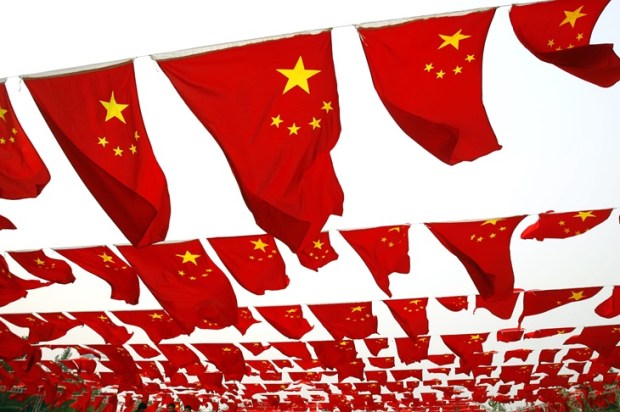In 1970, at a meeting in Washington DC, former US Secretary of State Henry Kissinger asked then chairman of the Federal Reserve Paul Volcker how the US could maintain global hegemony in the following decades.
Volcker responded, ‘We need to enhance the trade deficit and make other people pay for it.’ A rather prescient idea given the economic composition of the world in the decades since.
The US at the time was in trouble. Its deficits were starting to run high, fuelling concerns over whether demand for its currency would hold as domestic manufacturing and production faltered. But not to worry, Volcker’s solution turned out to be quite a practical one.
In 1971, when President Richard Nixon effectively announced the end of the Bretton Woods System by indefinitely suspending the USD’s convertibility into gold, the US maintained international hegemony using the petrodollar system.
Under this system, major resource-exporting nations like Saudi Arabia, the United Arab Emirates (UAE), India, and China would sell their resources – most notably oil – in US dollars (USD), forcing nations around the world to buy USD as foreign reserves to invest in US Treasury bonds.
This would allow the US to run large government deficits and keep interest rates relatively low. After all, the more demand there is for your bonds, the lower their yields need to be.
Sounds simple enough right?
Well, in recent years speculation has been building as to whether this US-led status quo is in jeopardy, particularly in the wake of the BRICS organisation entailing the economic collaboration of Brazil, Russia, India, China, and South Africa – only one out of five of which is generally considered a US ally.
It’s easy to point at the development of pacts like this along with coordinated efforts to shift away from USD usage as the root cause of the decline in US hegemony, but the truth is that the US is its own biggest threat in internally destroying the empire and global structure it worked so hard to assemble.
Amongst offering its militaristic might to crush certain geopolitical threats in unstable regions in exchange for the sale of resources in USD, the US has also been able to maintain this status quo with significant leverage in the form of its own resources.
In fact, the petrodollar system is predicated on the US having a stable domestic supply of the resources it requires other nations to sell in USD.
Take oil for instance. If OPEC nations were to cease the sale of their oil in USD, the US could simply threaten to inundate the global marketplace with its own supply of oil and destroy the pricing power of OPEC.
Conversely, if the US were to flood the market with its oil, OPEC nations could just sell their oil in another currency, placing immense downward pressure on the USD and in turn causing widespread inflation across America.
A prisoner’s dilemma at its finest.
It would then make sense for the US to bolster its domestic supply of resources like oil that constitute this sort of geopolitical leverage. Yet, that is the exact opposite of what the current US government seems hell-bent on doing.
As presidential candidate in 2020, Joe Biden pledged to end the subsidisation of the fossil fuel industry and clamp down on drilling for oil and gas on US territory – either on or offshore.
Upon entering office, the Biden Administration has implemented measures pausing oil and gas leases, imposed stricter regulations on oil methane emissions and provided renewable energy industries generous subsidies with the overarching aim of crowding out fossil fuels.
More recently, prominent Democrats have signalled their intentions to clamp down on America’s fossil fuel industries by attempting to publicise information that may be considered by many as suboptimal optics.
On May 23, Senate Democrats launched an inquiry into former President Donald Trump’s meeting in April with oil and gas executives at his Mar-a-Lago estate in Florida, accusing both Mr Trump and the fossil fuel sector of selling out everyday Americans to line their own pockets.
On the same day, Democratic Senate Majority Leader Chuck Schumer announced he will be sending a letter to the US Attorney General requesting the Justice Department conduct a thorough investigation into anti-competitive behaviour exhibited by the oil and gas industries.
But that’s not all.
America’s hawkish stance on Russia in response to the latter’s illegal invasion of Ukraine in early 2022 is incredibly self-destructive to US currency-based hegemony.
Just days after the Kremlin’s incursion on Ukrainian borders, the US started not only implementing trade sanctions on Russian exports but began to freeze the Russian-owned USD-denominated foreign exchange reserves held in Western banks.
Some commentators have even suggested outright seizing these reserves to deter the Putin regime from pushing forward with its westward crusade.
This massively undermines confidence in the USD as a reserve currency because it makes investing in both USD-denominated reserves and bonds incredibly risky. Would you invest in an asset that can be effectively frozen or confiscated within days? Of course not.
More to the point, why people think large powers like Russia or China are determined to swiftly replace the USD as the world’s global reserve currency as soon as possible doesn’t make much sense.
China alone holds around $855 bn in US Treasuries on its books. I thus very much doubt it wants to see the US economy tank any time soon.
The only conclusion we can draw from all of this is that it isn’t America’s adversaries that yearn for the demise of the US Empire, it is seemingly its own politicians.

























